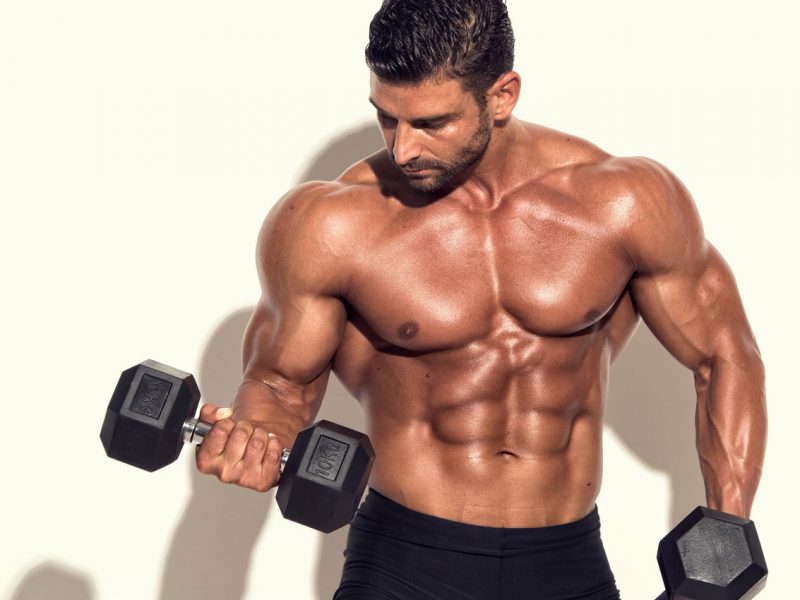Sports supplements should be used in addition to a healthy diet and training.
In order to build muscle quickly, it is necessary to look for products that accelerate protein synthesis and increase the rate of recovery after workouts.
And sports nutrition can help with that. Remember that nutrition and training are the key to muscle development and physical growth, and with only sports nutrition you will not reach your goals. They are only a supplement to basic nutrition.
Creatine. This is a cheap and effective way to increase strength, muscle hypertrophy and anaerobic capacity (as proven by a huge number of studies).
Fish Oil. Provides an essential balance of omega-3 and omega-6 fatty acids, which play an important role in long-term cardiovascular health and triglyceride regulation.
Vitamin D. Actually, vitamin D is not a vitamin. It is a fat-soluble nutrient similar to vitamins A, E and K, but different in that it acts as a steroid precursor in terms of hormonal functioning. Studies have shown that optimal levels of vitamin D can improve heart health, cognition and bone density.
Whey protein. If you’re trying to increase your protein intake or meal frequency to get the right amount of calories, whey protein will serve as one of the cheapest, tastiest and most convenient ways to reach your goals.
Supplemental
Probiotics / Digestive Enzymes. If you consume 4,000 calories daily, your gastrointestinal tract is doing double duty. In this case, you need to improve its bacterial flora to stimulate the synthesis of short-chain fatty acids, optimize nutrient absorption and the immune system’s response to antigens.
BCAA. According to many experts, the need to take BCAAs depends on each individual case. If you’ve been starving yourself or training intensely for an extended period of time, you may need this supplement, although it’s not necessary for the average athlete.
ZMA. Sleep plays an important role in muscle growth and improving recovery between workouts. However, many athletes are deficient in zinc and magnesium because these elements are used up during intense workouts. This can lead to hormonal changes that interfere with training results.
Nutritional tips for gaining weight
Protein:
- Consume protein before and after exercise.
- Consume protein at every meal or snack.
- Time between meals should be 3 to 4 hours. This will bring the amino acid concentration back to its original level.
- Consume protein before a workout or at least take BCAAs to stimulate the anabolic effect.
Carbohydrates:
- Consume carbohydrates before and after your workout.
- Take into account personal preferences and body response (e.g., eat at intervals throughout the day, in the evening, at night, more in the morning, etc.)
- Focus on fruits, vegetables and other whole foods such as rice, potatoes, oatmeal, etc.
- Carbohydrates should not be feared or completely avoided, as they are necessary in the process of building mass.
- If carbohydrates make you sleepy, choose foods with a lower glycemic index or consume most of them at the end of the day.
Fats:
- Since fats slow down the absorption of nutrients, try taking them at different times (before, during, or after your workout) and observe your body’s reaction.
- Include fats in different meals throughout the day, as they lower the glycemic index and improve the absorption of fat-soluble vitamins.
- Balance your intake of polyunsaturated, monounsaturated and saturated fats.
- Avoid artificial fats (i.e., those produced in factories).
- Ensure an adequate intake of omega-3s from a variety of sources.




